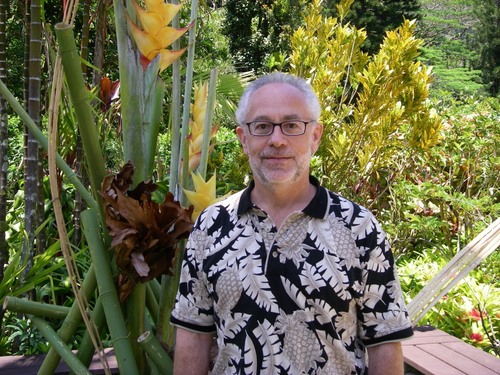
Wide sandy beaches, cool sea breezes and lush tropical vegetation… Noted botanist and conservationist Christopher Dunn is leaving all that behind for the blustery climes of upstate, NY when he assumes his duties as the newly appointed Elizabeth Newman Wilds Director of Cornell Plantations on April 1. Dunn, who succeeds long-time director Don Rakow who stepped down last May, will say goodbye to the sunny skies and rich volcanic soils of the Lyon Arboretum at the University of Hawai’i – Manoa, where he served as director and helped to revitalize a 193-acre tropical rainforest and botanical garden. Dunn comes to Cornell with an extensive background in botanical garden administration, fundraising and conservation, having also previously served as executive director of research at the Chicago Botanic Garden. At Cornell Plantations, he will take the helm of Cornell’s renowned complex of 3,500 acres of botanical gardens, arboretum and diverse network of 43 nature preserves, with 70 full and part-time employees and a $2.8 million operating budget.
“Plantations is an integral part of Cornell, serving as both the largest laboratory and richest classroom on campus, while furnishing the university with a unique botanical character unlike that of other institutions of higher learning,” said Dean Boor. “I am confident that Christopher’s depth of experience and passion will foster new opportunities for Plantations to enhance its conservation mission while continuing to promote the enrichment and well-being of the entire Cornell community.”
Conservation and community engagement will be key items at the top of Plantations’ agenda under Dunn’s leadership.
“More and more, [traditional botanical gardens] are getting into conservation, and the relevance we have in our communities is being driven around 21st century issues like climate change,” Dunn said. “Gardens have new opportunities to become significant and authoritative voices in contemporary environmental issues, if we can continue to seamlessly knit our garden programs together and into the social fabric of our communities.”
See also: Cornell Chronicle [2013-02-05]


